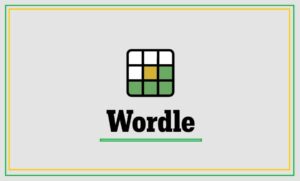Healthcare market intelligence
4 min read
“Healthcare market intelligence services assist firms to meet demographic shifts and achieve organizational goals at multiple phases of the product lifecycle – from clinical research and approval to commercialization,” according to Infiniti expertise. Leading healthcare business companies frequently fight to maximize their profits, which is frequently the result of anticipating and successfully navigating change. Patients’ healthcare requirements are being disrupted by rapid demographic and economic developments around the world. At various stages of business operations, healthcare market intelligence solutions play a critical role in assisting organizations in addressing and adapting to demographic shifts and achieving strategic goals.
![]()
Infiniti Research, a global market intelligence solutions provider, has compiled a list of the top market intelligence trends in the healthcare business and they are:
- Increasing the quality of data collection and analysis: Despite the fact that the healthcare business has a large amount of data, the technique of collecting it and the introduction of new data kinds will have an impact on the overall customer experience. Automated technologies can assist healthcare organizations in sifting through massive volumes of data in real-time to provide the best possible patient experience. Healthcare databases also help providers to acquire a more detailed understanding of a patient’s path.
- Smart technology consumption: The use of engaging as well as modern technology has aided in the creation of a well-organized healthcare ecosystem. Patients, physicians, hospitals, and the healthcare industry as a whole benefit from technologies like cloud-based platforms and AI. However, the possibility here is to leverage such technology to handle organized and unstructured information, as well as to use healthcare market intelligence to evaluate treatment efficacy and examine claims to help uncover commonalities in a patient’s health.
- Transparency in healthcare is essential: Maintaining transparency in healthcare operations has proven critical to the industry’s success. Transparency in healthcare procedures will boost patients ’ satisfaction and result in better consequences. It will also aid in improving the overall business performance of healthcare businesses.
Healthcare is basically a community-based service. Professionals in the healthcare value chain want clear, reliable market knowledge at different levels in order to develop perceptions on opportunities to enhance accessibility and scalability. Many leaders, on the other hand, must make do with fragmented or incomplete perspectives because they lack the necessary data on demographics, market fundamentals, and utilization trends at the province, market, and zip code levels to test the proposed hypotheses, unravel important insights, as well as frame actionable strategies. Healthcare Sector Intelligence combines data sets from throughout the healthcare market into a cohesive analytic experience, allowing businesses to identify possibilities for increased access, eliminate market inefficiencies, and drive growth. It combines proprietary information with third-party health information to visualize and disclose additional insight into market sociodemographic characteristics, supplier and physician vistas, member registration, and service-line-level utilization and billing, all in compliance with the Health Insurance Portability and Accountability Act (HIPAA).

According to McKinsey’s survey, more than 320 million people had their demographic and insurance coverage information collected. Also, over 1 million physician records and 95,000 facilities have been mapped across the US. 2.3 billion claims information from Medicare’s commercial and fee-for-service demographics.
Innovation is redefining health care by offering ease, convenience, transparency, and cost-effectiveness. The AHA Center for Health Innovation helps organizations make the right choices by discovering, assessing, and analyzing the most important healthcare trends. They can foresee where healthcare is headed, how it will evolve over time, what will force it to develop, as well as how to react at both the systemic and community level using data-driven market intelligence. Discussions with hospital and other health system administrators and other health care specialists, statistics of hospital and health organizations, and a variety of healthcare papers and research papers are used to generate reports, initiatives, and materials.
COCIR is indeed the primary industry representative for the health ICT industries, hence it was decided to launch a dedicated Digital Health Market Intelligence initiative. Imaging IT Focus Group and Enterprise IT Focus Group are the two groups that makeup Digital Health Market Intelligence. PACS (Picture Archiving and Communications Systems) and RIS (Radiology Information Systems) data has been collected by the Imaging IT focus group since 1995. Since 2009, a new group known as the Enterprise IT focus group has been generating information based on IT expenditure in 12 countries. The majority of this information are only accessible to COCIR Corporate firms that have chosen to fund our endeavour. COCIR, on the other hand, releases part of these data to the public once a year in the form of an annual report. In 2010, the European hospital health ICTs market was worth €2.5 billion. COCIR estimates that by 2015, this market will have grown to €2.7 billion. Administration information systems, clinical information systems, laboratories information systems, including radiology information systems are all examples of ICT solutions utilised in hospitals in Western and Eastern Europe (in the field of radiology and cardiology).
Conclusion
According to Harsha Rao, companies across sectors use market segmentation to divide their clients into different categories based on their commonalities and examine each group separately to uncover significant elements influencing their behaviour. Market segmentation in healthcare is a relatively recent notion. He have learned a lot from experience. If you want to know more about his experience collaborate with him.





